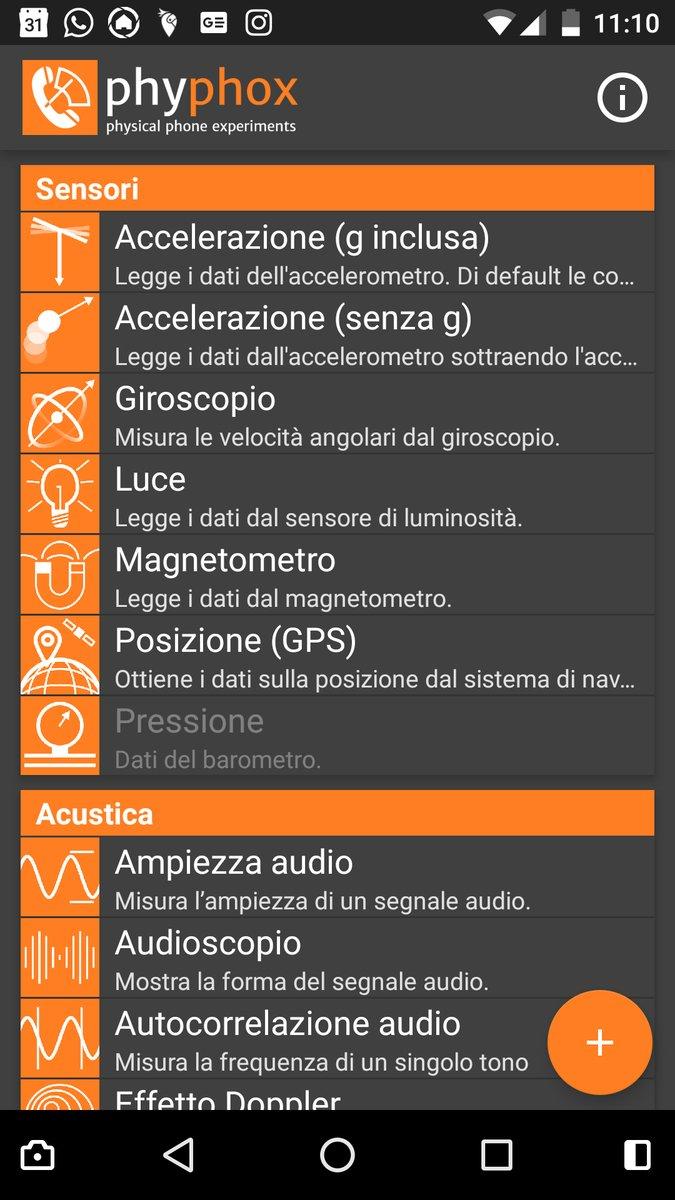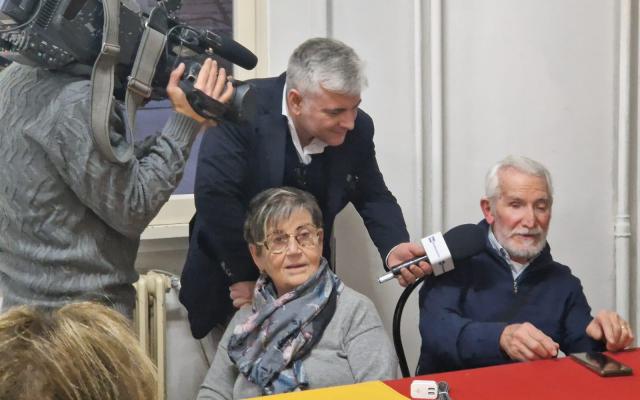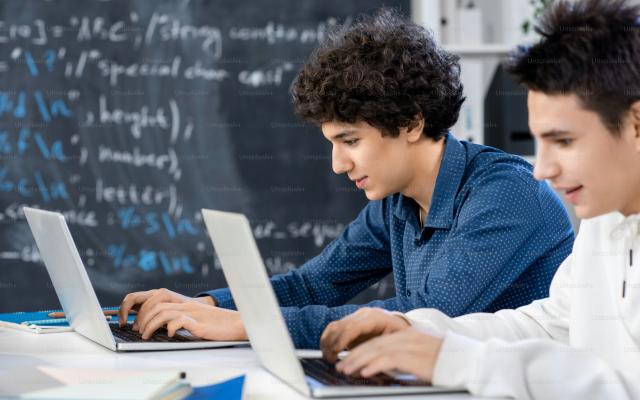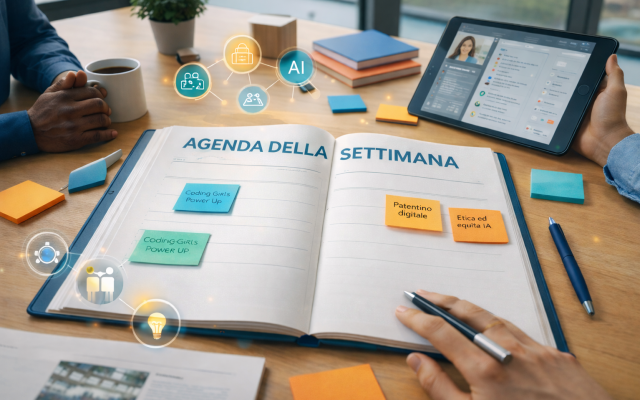A smartphone can become a Physics lab in the hands of students and professors. You can use the smartphone accelerometer to measure the motion of a pendulum, use the phone as a sonar to measure distances or use the barometer to study the motion of a lift.
We saw it at the Phyrtual Innovation Gym with Project "School of Physics with Arduino and Smartphones" conceived in 2016 by Giovanni Organtini from the Sapienza Department of Physics to train teachers to use new technology in education.

Now, thanks to the Italian translation of Phyphox, the app that allows anyone to complete and design Physics experiments, schools have a new tool.
Phyphox was translated an improved by the students at IIS "Via Silvestri 301" in Rome who participated in the school-work programme at the Sapienza University Department of Physics.
The app is free and has an “enormous didactic and innovative potential.” Phyphox, which is an acronym for “PHYsical PHOne eXperiment.” It allows students to use their smartphones, all of which are rich with sensors – cameras, microphones, accelerometers, gyroscopes and in some cases even barometers, as real tools to perform scientific measurements.
In an interview with daily La Repubblica, Physicist Organtini emphasised how “experiments with smartphones are extremely useful at all school levels and in all schools. They are recommended to anyone who would like to learn something about the laws of nature.” Moreover, Organtini believes that “they represent a valid alternative to dedicated tools that are often very expensive and hard to find. Furthermore, smartphones provide precise and accurate results.”
For further information:



